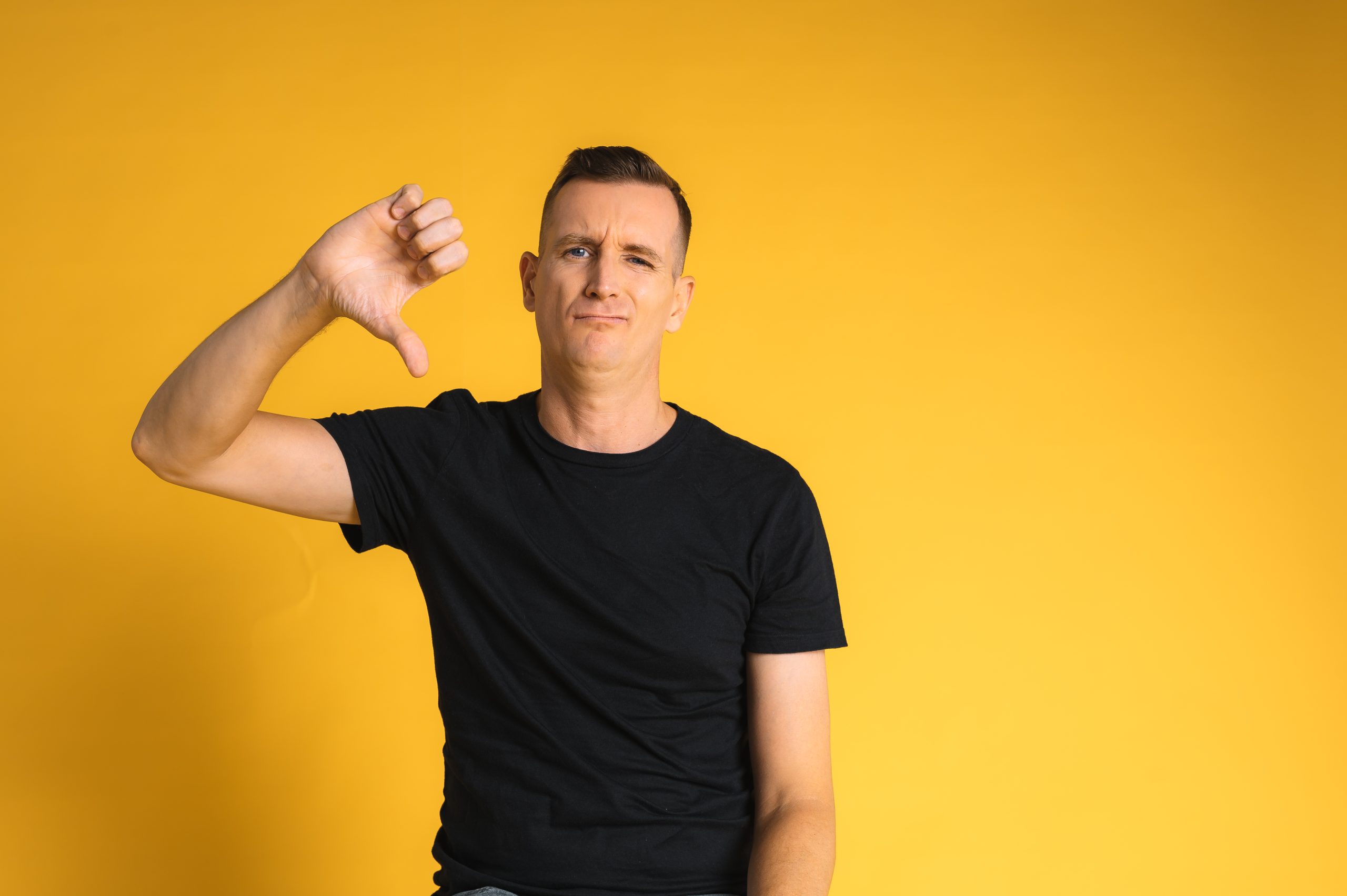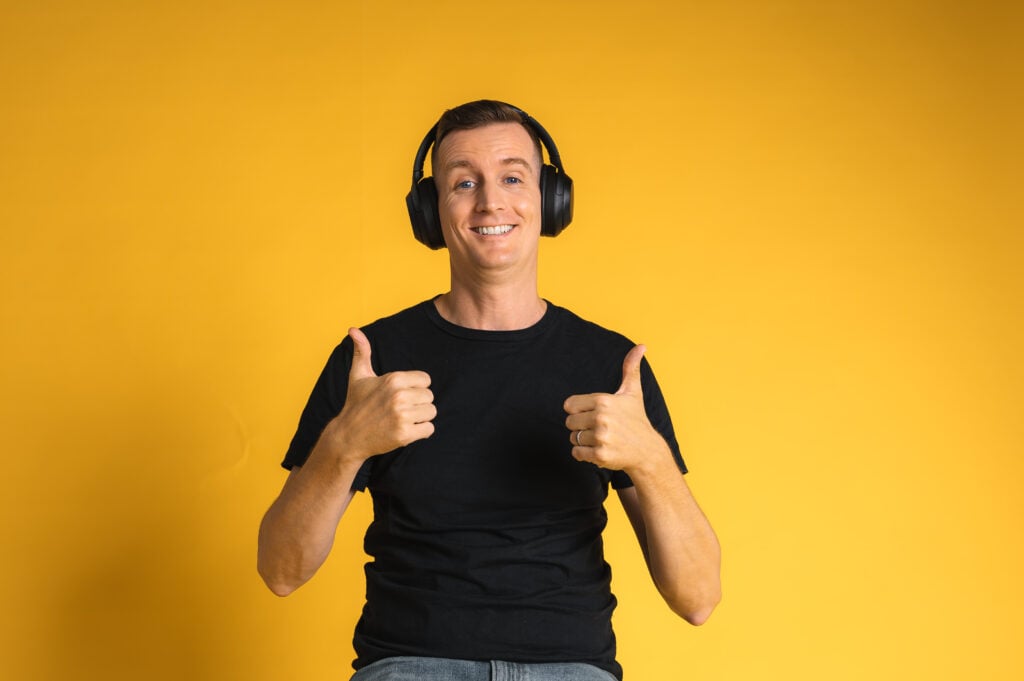The emergence of podcasts has revolutionized the way we consume audio content, offering a platform for diverse voices and topics.
As an experienced podcaster, there’s something that really gets under my skin: the film and TV industry’s persistent misunderstanding of what a podcast truly is. It’s like they’re stuck in an alternate reality where podcasts are either sensationalist shock jocks, socially awkward nerds hidden in dark basements, or worst of all… hosting a radio show or YouTube channel. Not a podcast!
Despite their growing popularity, the film and TV industry often misunderstands the essence of podcasts. In several instances, these mediums have inaccurately portrayed podcasters and failed to grasp the unique format and appeal of podcasting.
In order to shed light on these misconceptions, this blog post aims to highlight specific examples of movies and TV shows that miss the mark when it comes to understanding podcasts.
By examining these instances, we can better appreciate the intricacies of the podcasting world and encourage Hollywood to portray this medium more authentically in the future. It’s time for the world to recognize the true power and impact of podcasting beyond the screen.
A True View About Podcasting
Brief History
Podcasting emerged in the early 2000s as a way for individuals to share audio content online. Initially, it was a niche platform with a limited audience. However, with the advent of smartphones and improved accessibility, podcasting experienced exponential growth. The ease of listening to episodes on the go, the freedom to choose from a vast array of topics, and the ability to connect with hosts on a personal level contributed to its increasing popularity.
Definition
A podcast is an audio-based medium that allows individuals or organizations to create, distribute, and share episodic content over the Internet. It is typically available for streaming or download, allowing listeners to access episodes at their convenience.
At its core, a podcast is a series of audio recordings or episodes that cover a wide range of topics and genres, including storytelling, interviews, educational content, news analysis, and more.
Unlike traditional radio shows, podcasts offer a flexible and on-demand listening experience, enabling audiences to subscribe to their favorite shows and receive automatic updates when new episodes are released.
Podcasts are typically structured in a series format, with episodes released on a regular schedule, such as weekly or monthly. They can be produced by individuals, media organizations, or even established brands, and cover an extensive range of subjects, catering to diverse interests and niche audiences.
The reality of podcasting
Podcasting is a dynamic medium that encompasses a structured process involving planning, recording, editing, and publishing.
- It begins with meticulous planning, where podcasters carefully choose their topics, research extensively, and outline their episodes.
- The recording phase involves capturing high-quality audio, often with professional equipment, and ensuring a smooth and engaging delivery.
- Post-production editing refines the audio, eliminating background noise, enhancing clarity, and adding music or sound effects to create a polished final product.
- Finally, the episodes are published on podcast hosting platforms for distribution to various podcast directories and platforms.
A Process Of Producing A Podcast: How To Record A Podcast
One of the remarkable aspects of podcasting is the diversity of genres and formats it offers. While true crime podcasts have gained significant popularity, the landscape extends far beyond that.
There are podcasts dedicated to history, personal development, comedy, storytelling, news analysis, and much more. The formats range from solo shows to conversational interviews, documentary-style narratives, and even fictional storytelling.
More Types Of Podcast: 7 Popular Types Of Podcasts
This vast array of genres and formats allows for a rich and varied listening experience, catering to diverse interests and preferences.
The Care
Major Misconceptions
It is crucial for the film and TV industry to move beyond these misconceptions and portray podcasting accurately. By doing so, they can showcase the dedication, creativity, and impact that podcasters bring to the medium.
About Podcasters
One of the major misconceptions lies in the industry’s stereotypical portrayal of podcasters and the podcasting process. They often depict podcasters as lazy, disheveled individuals who lack professionalism and commitment. This couldn’t be further from the truth.
In reality, podcasting requires meticulous planning, extensive research, and a passion for storytelling. Podcasters dedicate countless hours to researching topics, crafting compelling narratives, and perfecting the audio production to provide an engaging and immersive experience for their listeners.
About Podcast Format
Additionally, the industry’s depiction of podcast content and formats is riddled with inaccuracies.
They tend to simplify the rich and diverse range of genres and formats that podcasts encompass. Instead, they often narrow it down to crime investigations or conspiracy theories, overlooking the vast variety of subjects and formats that podcasts explore.
From true crime to history, personal development to comedy, podcasts cover a broad spectrum of topics and offer something for every interest and taste.
Examples of Movies/ TV Shows
It is essential to note that my intention is not to disparage or discourage these films and shows but rather to foster a broader conversation about the true nature of podcasts. By debunking misconceptions and spreading awareness, we can ensure that audiences have a more informed and nuanced view of this transformative form of audio content.
As a podcast fanatic and producer, I urge filmmakers and TV show creators to show the true realities of podcasting, and its diverse genres and formats, and accurately represent the hard work, passion, and dedication that go into creating compelling audio content.
By doing so, they can authentically reflect the vibrant podcasting community and inspire audiences to explore the richness of this medium.
You People
While the film claims Jonah Hill’s character is a podcaster, he is, in fact, a YouTuber. The movie showcases the characters live streaming on YouTube and later transitioning to a TV studio.
This misrepresentation blurs the lines between YouTube content creation and podcasting. While podcasts can have a video element, it is important to note that live streaming and receiving live comments are not typical features of podcasting.
Success in the podcasting world does not entail moving into a TV studio; it means acquiring a dedicated podcast studio to enhance audio quality and production value.
Ghostbusters: Afterlife
The main character Logan Kim is nicknamed “Podcast” because he has a podcast. However, the film fails to portray podcasting accurately.
Instead of showcasing Logan actually podcasting, the character is shown narrating into a boom mic, painting Phoebe as an outcast with a secret. This portrayal misrepresents the essence of podcasting, which involves creating audio content distributed through online platforms.
The movie missed an opportunity to demonstrate the genuine process and unique aspects of podcasting. Real-life success stories illustrate the profound impact that podcasts can have. From humble beginnings, many podcasts have gained millions of dedicated listeners and achieved mainstream recognition. Podcasts have become launching pads for careers, led to book deals, and sparked important conversations on social issues. They have given voice to underrepresented communities and empowered individuals to share their stories. Podcasts have become a powerful tool for education, entertainment, and personal growth.
And Just Like That
Moving on to the TV show “And Just Like That,” Carrie Bradshaw, played by Sarah Jessica Parker, co-hosts a podcast called “X,Y, and Me” with Che Diaz.
While the show attempts to touch on important topics such as sexual and gender roles, some elements of the portrayal raise eyebrows. In one episode, Carrie is seen directly answering phone calls live while supposedly prerecording a podcast.
This is not how podcasting typically works. Podcast episodes are usually recorded in advance and edited for a polished final product. Answering live calls during recording is more akin to a radio show than a podcast.
This misrepresentation undermines the authenticity of the podcasting process.
It is essential to distinguish between different forms of media, such as YouTube, TV shows, and podcasts, to avoid blurring the lines and perpetuating misconceptions. Podcasting is a distinct medium that offers unique storytelling and audience engagement opportunities. By accurately portraying podcasting, the entertainment industry can contribute to a better understanding and appreciation of this rapidly growing industry.
How the Film and TV Industry Misrepresents Podcasting- A Conclusion
The entertainment industry’s persistent misconceptions about podcasts have led to inaccurate portrayals of the medium in movies and TV shows. It is crucial for the industry to understand the true nature of podcasting and reflect it authentically. Accurate portrayals would showcase the careful planning, dedicated production process, and vibrant diversity of genres and formats that podcasts offer.
As a podcaster and enthusiast, I have a responsibility to educate, advocate, and contribute to a broader understanding of podcasts.
By sharing my experiences, showcasing the diverse range of voices and genres within the podcasting world, and encouraging accurate representations, I hope I can help dispel misconceptions and foster a more informed appreciation for this transformative medium.


